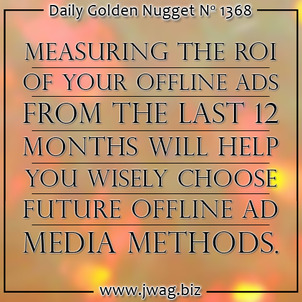
"Save the clock tower! Hey kid, save the clock tower. Lightning struck that thing, 60 years ago!"
Today is Back to the Future Day, the day predicted in the 1989 movie Back to the Future II (BTTFII) where Marty McFly and Doc Emmett Brown race to the future--Wednesday, October 21, 2015--to save the McFly family from a horrible fate.
During that iconic silver screen time jump, the movie predicted a lot of things: smart glasses, big screen TVs, drone cameras, and fingerprint readers have come true We're all still waiting for hover boards, flying cars, accurate weather predictions, and all lawyers to be abolished.
Thankfully, the rate of inflation hasn't jumped as high as the movie predicted--$50 for a Pepsi or a small $100 donation to save the clock tower. Speaking of saving the clock tower; that particular scene portrayed a biometric scanner as a method of payment. That's not too far off current iPhone reality and how you can activate your NFC payment with your fingerprint. Of course, to complete a mobile payment (or $100 donation), the retailer would also need a mobile payment system equipped with a NFC reader.
Residential Expansion
One easy prediction that Back to the Future II made, was the growth of residential areas everywhere, even into deserts. In New Jersey, I've witnessed farmland converted into residential developments, and watched as hillsides, first excavated as quarries for a few years, were turned into residential areas.
Residential expansion isn't just happening in the U.S. either; it's happening worldwide. In the last 5 years alone, I've also witnessed major residential development near my apartment in Bordeaux, France. The opportunity for business expansion will always be available as long as our human population continues to grow.
These new residential areas bring new zip codes, new businesses, and new opportunities to target customers. Although the internet gives you the power to sell to anyone, anywhere, a local retail store has an advantage when it comes to targeting local communities. When it comes to local print media advertising methods, most jewelers will quickly list direct mail and community newspapers as the obvious two. However, you also need to include ads in church bulletins, chambers of commerce newsletters, AAA newspapers, and programs for school or other local events.
Local print advertising is still a valuable part of your overall marketing strategy. Like all advertising methods, you should analyze your print ad results to see if they are worth the money.
Analyzing Print Ad Results
There are a lot of tools available to help measure online advertising results. Some might say that measuring results from offline ads is impossible, but it's not. The process is just tedious. To do it, you need a total sales report broken out by local town names, and you need the total advertising expense for each of those towns. It easiest to do these calculations for a 12 month period following these specific steps.
Step 1
Run a 12 month report from your point of sale system (POS) showing the towns where most of your customers come from. This is a customer count report, not a sales report.
Step 2
Now run a similar report showing the total sales for each of the towns in the above list. Repeat business is more important than individual diamond sales, and since diamond sales will skew your numbers a lot, you should subtract them from the sales figured reported in this step. Unless your POS generates reports excluding diamond sales, you'll have to do a little manual math to back the diamond sales numbers out.
Step 3
You can't survive on one time purchase customers. Repeat business, lifelong business, and sales that span generations are needed for a retail jeweler to thrive. Since diamond sales are usually a single life event purchase, they should not be used in the calculation of the average value of your customers. To calculate the 12 month average of your customers, you simply divide the total sales for each town from Step 2 by the total customers from each town from Step 1 as shown here:

Right away, this number tells you the average transaction value per person who lives in those respective towns, which will help you evaluate your future print media targeting.
Step 4
Now total up all the money you spend to advertise in each of your local towns. Some local newspapers will have distribution zones covering multiple towns. To calculate the advertising expense for each town in a zone, simply divide the zone cost by the number of towns in that zone. Ultimately, you'll have to figure out the total spending for each of these towns over the 12 month period.
If you're like most companies, you probably just track your advertising cost as the cost of the ad, postcard, and postage without accounting for payroll to get that job done. Since payroll is always the largest expense for any business, you could estimate your payroll for each ad, or you could probably double or triple what you calculate in this step.
Step 5
Next we want to compare the sales you made to each town to the cost of the adverting to that town. This is our Return on Investment calculation, or ROI. We calculate it by dividing the total sales for each town by the total ad expense for each town as shown here:

The ROI will vary greatly for each town. The town where your store is located will probably have the highest ROI, perhaps above 80, while others are well below 15.
What Do You Do With This Information
My recommendation is to cut off all advertising to towns with calculated ROI of 5 or less. Honestly, if you eliminate anything with a calculated ROI of 15 or less you will be better focused on the clients who really matter to you. Knowing your ROI and the average transaction value for residence of each town will guide you when it comes time to choose where to advertise.
As an example, the community newspaper that's delivered to my own home town also distributes to 21 other towns grouped into 6 different news zones. Assuming your local newspaper has a similar town/zone grouping, you can use the above analysis to spend your marketing budget more wisely.
You also need to pay attention to new community developments happening around you, just like we see in the Back to the Future movies. New housing developments and apartment complexes bring new people into the community that don't yet know about you. In those cases, it is important to use place that newspaper ad, or even create a direct mailer that will reach these new prospects.
The early days of the holiday season are already here. Working through this analysis today will allow you to better hone your advertising budget for the next few weeks. This will also give you a better idea of how to better build a Custom Audience in Facebook.
It usually takes me several hours to work through this calculation process. While you might be able to look up your marketing spend in QuickBooks easily, it takes time to break out the individual town details for advertising expenses and customer sales.
Remember that any print ad should use a different domain name. You can redirect those domain names to specific pages on your website rather than to your home page.
Run-in with a DeLorean
Have you ever seen a DeLorean in person? I've seen them a few times in the last 30 years; coincidentally, the most recent time was just 7 days ago while driving on the East Side Highway in New York City. I have to say, it's a bit tricky to maintain near 88 mph in heavy traffic to take the photo you see to here.

Happy Back to the Future Day!








